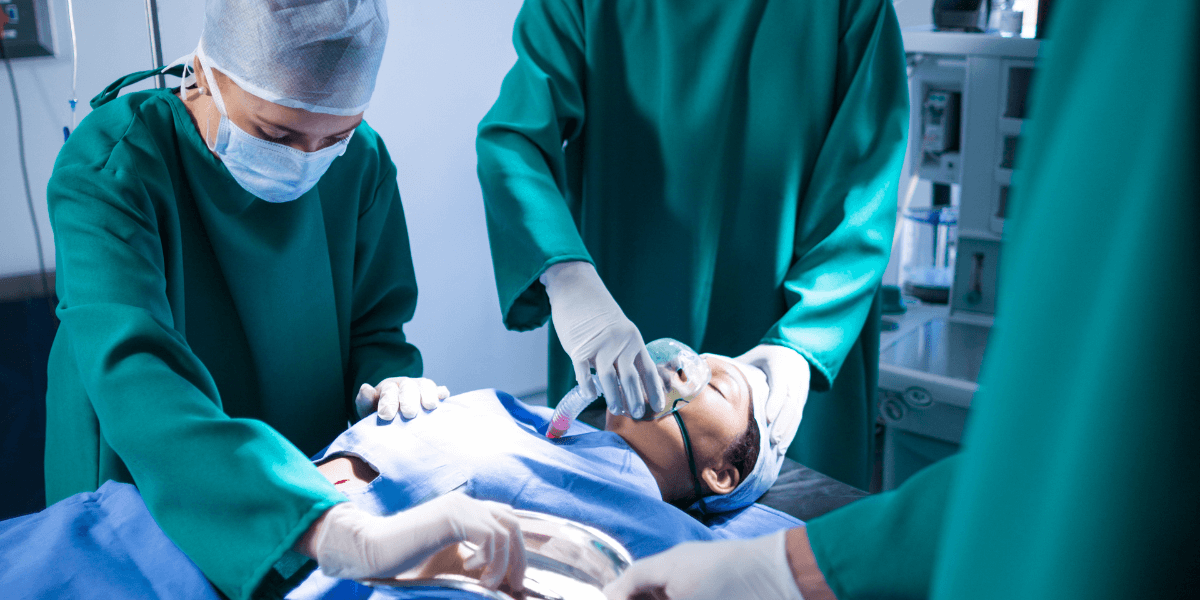


Gallbladder disorders are common health issues that affect millions of people worldwide. In the United States alone, it is estimated that around 20 million adults suffer from gallbladder disorders. It is important to be aware of the signs and symptoms of gallbladder disorders in order to detect them early and seek timely treatment. Keep on reading to learn more about gallbladder disorder, its common symptoms, treatment options, and ways to prevent it from occurring in the first place.
If you reside in Anchorage, AK, and need gallbladder treatment, our highly competent, board-certified general surgeons are here to help at Far North Surgery.
The gallbladder is a pear-shaped organ located on the right side of the abdomen, just below the liver. Its primary function is to store and concentrate bile, a digestive fluid produced by the liver. When you consume fatty foods, the gallbladder releases bile into the small intestine to help break down fats and aid in their absorption during the digestion process.
Gallbladder disorder refers to a condition when the flow of bile through the bile ducts is blocked. It causes inflammation in the stomach. This disorder is usually a gallstone. Gallstones form when substances in bile harden. Cancer in the gallbladder is rare, but it can occur on occasion.
Gallbladder disorders refer to several medical conditions and concerns that can affect the gallbladder. The most common gallbladder disorder is gallstones. According to research, approximately 10-15% of Americans have gallstones. The common gallbladder disorder may include:
It is important to note that sometimes, there may be no symptoms at all for gallbladder cancer.
Gallstones are typically formed when there is an imbalance in the bile components. Factors that increase the risk of gallstone formation include obesity, a high-fat diet, rapid weight loss, certain medications, and hereditary factors.
Several imaging techniques are used to diagnose gallstones. Your healthcare professional may perform a physical exam or ask you to get abdominal and chest X-rays. Ultrasounds and CT scans are also commonly utilized to visualize the gallbladder and identify the presence of stones. Additionally, blood tests may be performed to assess liver function and identify any underlying causes.
The symptoms of gallbladder disorder can vary depending on the specific condition. However, common symptoms include:
If you experience any of these symptoms, seeking medical attention for a proper diagnosis and gallbladder treatment is important.
See Also: Foods to Avoid If You Have Gallbladder Problems
The treatment options for gallbladder disorders depend on the severity of the condition. In the case of gallstones, if they do not cause symptoms, they may not require immediate treatment. However, if gallstones are causing pain or complications, gallbladder removal surgery (cholecystectomy) may be recommended. Cholecystectomy can be performed through traditional open surgery or minimally invasive laparoscopic surgery.
For other gallbladder disorders, such as cholecystitis or gallbladder polyps, the treatment approach will vary depending on the specific condition and its severity. In some cases, medication and lifestyle changes may be sufficient, while in others, surgical intervention may be necessary.
If left untreated, gallbladder disorders can lead to various complications, including:
These complications can be life-threatening, highlighting the importance of early diagnosis and gallbladder treatment near you.
While it's not always possible to prevent gallbladder disorders entirely, there are proactive steps you can take to reduce your risk. Maintaining a healthy weight, following a balanced diet, engaging in regular exercise, avoiding rapid fluctuations in weight, and effectively managing any underlying health conditions all play crucial roles in prevention.
Regarding dietary adjustments, avoiding diets high in refined grains, such as those found in sugary cereals, white rice, bread, pasta, and sugary sweets, is advisable. Instead, it is beneficial to include whole grains like brown rice and whole wheat bread and healthy fats sourced from foods like fish and olive oil to promote gallbladder health.
Regular check-ups with a healthcare professional are also essential in monitoring your gallbladder health and detecting any potential issues at an early stage.
See Also: Common Gallbladder and Biliary Tract Diseases: Causes, Symptoms, and Prevention
In summary, gallbladder treatment options vary depending on the condition's severity and the patient's specific needs. Medical management and lifestyle changes can help in some cases, while surgical procedures like laparoscopic cholecystectomy offer effective solutions for others. Working with healthcare providers is important for determining the optimal treatment plan. Plus, ongoing research holds the promise of continued advancements in gallbladder care.
You're at the right place if you are searching for the most competent and experienced general surgeons for the best gallbladder treatment in Anchorage, AK. At Far North Surgery, our team of board-certified surgeons is renowned for providing top-grade medical care. We collaborate with other specialists to ensure comprehensive and effective treatment options for all our patients. With particular emphasis on surgical oncology and endocrine surgery, our personalized and state-of-the-art facilities provide optimal patient experience.
We are proud to have Dr. Madhu Prasad on our team, who has been honored with several awards and accolades, including the prestigious Best of Anchorage Awards for Cancer Treatment. With his exceptional skills as a surgical oncologist for over 30 years, Dr. Prasad offers unparalleled expertise in gallbladder treatment.
Schedule a consultation today to discuss personalized solutions tailored to your specific needs. Don't settle for anything less regarding your health - trust in the best surgeons at Far North Surgery in Anchorage, AK. Call us at 907-276-3676 to start your journey towards better health.